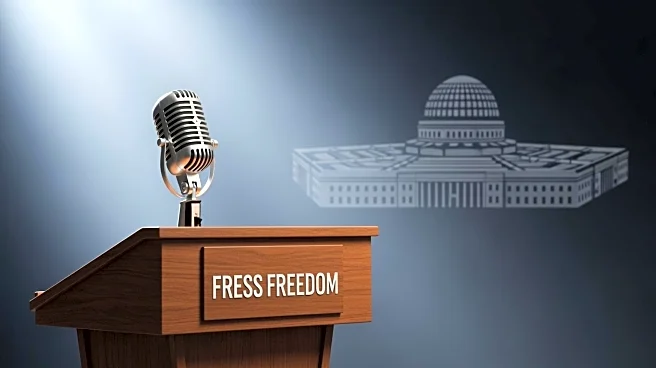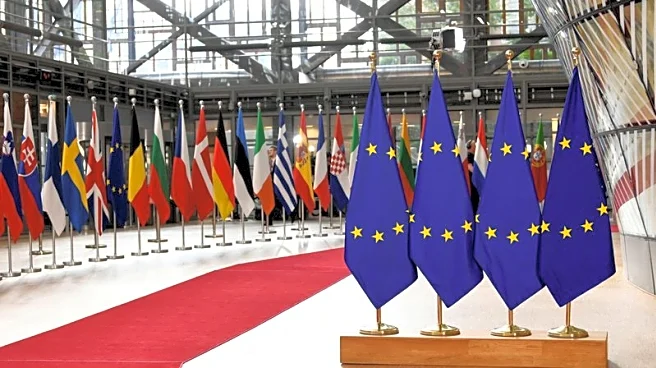What's Happening?
Defense Secretary Pete Hegseth has introduced new press policies at the Pentagon, leading to significant backlash from media outlets. The new rules restrict reporters from using unauthorized material,
even if not classified, without permission. This has been widely criticized as a violation of First Amendment rights, prompting many media organizations to refuse to sign the agreement and return their press passes. The Pentagon Press Association has condemned the rules, stating they are designed to stifle a free press and isolate reporters. The controversy comes amid heightened military activity in Central and South America, where the U.S. has increased its forces to combat narcoterrorism.
Why It's Important?
The new press restrictions at the Pentagon raise significant concerns about the freedom of the press and transparency in government operations. By limiting media access and control over information, the policies could hinder the public's ability to stay informed about military actions and government decisions. This is particularly critical as the U.S. military engages in controversial operations in Latin America, which have already sparked debates over legal justifications and civilian casualties. The situation underscores the essential role of an independent press in holding government accountable and ensuring that citizens are informed about how their tax dollars are used and the actions of their military.
What's Next?
The media's refusal to comply with the new Pentagon press rules suggests a potential standoff between the government and the press. This could lead to further legal challenges or negotiations to revise the policies. Additionally, the ongoing military operations in Latin America may continue to draw scrutiny and demand transparency, potentially influencing future military and press relations. The departure of Admiral Alvin Holsey, amid these tensions, may also prompt further investigation into the Pentagon's strategies and decision-making processes.
Beyond the Headlines
The situation highlights broader issues of press freedom and government transparency in the U.S. The restrictive press policies could set a precedent for other government agencies, potentially leading to a more controlled media environment. This raises ethical and legal questions about the balance between national security and the public's right to know. The controversy also reflects ongoing tensions between the Trump administration and the media, which have been a hallmark of his presidency.









